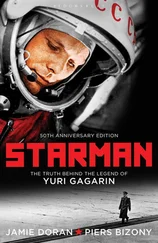The Vulture raised an eyebrow. “Are you saying you can’t do it?”
Mungabe felt a flash of anger. He could do anything. “I can, but for a very large price. What will you pay?”
The Vulture shook his head. “I pay nothing. You do this for the ship and its hostages; your usual take.”
Mungabe laughed. This Vulture was joking. “I don’t need a cruise ship. I need a fishing ship! They are at least useful after. What do you think my crews do when they are not pirating, huh? They fish. They use the hijacked commercial boats to do it. They do it for Somalia. Without my assistance Somalia’s waters would be emptied by the rest of the world. They sneak into our territorial boundaries where the tuna lives, steal our fish by the tons, and leave nothing for us. We stop this plundering by the rich and give to the poor.”
The Vulture smirked. “Spare me the Robin Hood story. You don’t give anything to the poor. You keep it all for yourself.”
Mungabe shook his head. “Still, I don’t do this for the boat. You must pay.”
The Vulture shifted. “I will pay you then, but in that case it is understood that I get both the ship and its cargo.”
“Cargo? What cargo?”
The Vulture shrugged. “Pharmaceutical products. Not important for you, but I would like to have them.”
The waiter returned with their meals. As he lowered the Vulture’s in front of him, Mungabe thought he would retch. On the plate was a large lobster; its black legs, hard carapace, and beady eyes were revolting, as was the heavy, oily odor of the drawn butter that sat in a cup next to it. The sight and smell of it repelled Mungabe. Like most Somalis, he would never eat a lobster, which he considered the equivalent of a sea cockroach. It was a bottom feeder, eating the fecal remains of the rest of the ocean’s creatures.
The Vulture sliced the beast in half with one deft cut from a long, wicked-looking knife. He twisted off a leg, put it to his lips, and sucked on it. He did all of this while gazing at Mungabe. Mungabe feared no man, but in that minute he wondered if he was dealing with a demon. He shook off the thought.
“I want two million dollars, and, as I told you last month, I want the American security company called Darkview put out of business. For that price I will hijack the ship. You get the carcass and cargo. I get any money on board and its passengers to ransom as I see fit.”
“One million. No more. Plus, you pay all expenses.”
“And Darkview?”
The Vulture waved a languid hand in the air. “It is already begun.”
3
CAMERON SUMNER STOOD NEXT TO A LOUNGE CHAIR ON THEdeck of the Kaiser Franz cruise liner and stared at the horizon, waiting. The chair was one in a long row of chairs, all occupied by passengers clad in swimsuits, baking in the sun. The woman to Sumner’s right, noticing his preoccupation with the horizon, did her best to capture his attention.
“I see you watch the ocean every day after your workout. It’s beautiful, isn’t it?” the woman, an American, said. Sumner eyed her. She wore a string bikini on a figure with full hips, fake breasts, and striking, artfully streaked hair. Her lips were painted a bright coral, and her forehead didn’t move when she spoke. Her husband, a good ol’ boy from Texas who owned a string of car dealerships, spent his days in the ship’s casino drinking gin and playing blackjack. His wife spent her days watching Sumner swim laps in the pool or run on the track. The woman’s question marked the first time she’d worked up enough nerve to speak to him.
“It is beautiful,” he said. He grabbed a towel and dried his dripping body, while the American woman looked at him with bright, avid eyes.
“So what brings you on a cruise ship alone?”
“I work for the company that owns the Kaiser Franz. ” Sumner kept his answers short to discourage more conversation.
“How interesting. ” The woman breathed the words.
Sumner did his best to contain his annoyance. His patience ran thin these days. He slipped on a pair of track pants, sank into a nearby lounge chair, and thought about Caldridge. He’d been having dreams of her, some so vivid that he thought he might be able to touch her, some so frightening that when he would reach her after a slow-motion chase, he would find himself to be too late and his anguish at her death would overwhelm him. He pulled up a mental picture of her: light brown hair a little past her shoulders, green eyes, a straight nose with no upturn, and a lithe, athletic runner’s body. He sighed and kept his eyes on the water.
The ship’s sundeck ran the width of the foredeck. In the center was the rectangular lap pool. Lounge chairs, each with a bright blue cushion, filled the rest of the available space. A small walkway ran along the railings. Sumner spent much of his time on the sundeck, because it allowed him to view both sides of the vessel.
The ship itself was smaller, more intimate, and much more luxurious than the larger cruise liners out of Miami. It boasted mahogany-paneled staterooms with flat-screen televisions, marble bathrooms, and thick Persian carpets. Each room had a private butler assigned to it. They’d embarked from Dubai, passed through the Arabian Sea, and were deep into the Indian Ocean on their way to the Seychelles Islands. It was ten in the morning. Only half the sundeck chairs were taken.
The woman shifted in her chair to lean toward him. Her blond, highlighted hair and overly manicured nails were the antithesis of what Sumner liked in a woman. He said nothing as he finished drying off. He grabbed a pair of Ray-Ban sunglasses and stretched out on the lounge chair, basking in the sun while he continued to keep watch.
“Are you working on this trip?” The woman interrupted his reverie. It was all Sumner could do not to sigh out loud.
“I’m headed to the Seychelles to check on our land-based operations.”
“How interesting, ” the woman said again.
Sumner continued to scan the area, his eyes hidden behind his sunglasses. The ocean swelled in calm, regular waves. A waiter worked his way through the lounge chairs, handing out complimentary juices to the sunbathers. Another employee followed, offering a spritz of mineral water to cool them.
The German family walked along the deck rail toward Sumner. He felt a prickle of awareness shoot down his spine. Sumner worked for the Southern Hemisphere Drug Defense Agency and had been hired out to the Kaiser Franz in response to a vague piece of intelligence suggesting that trouble sailed with the ship. The trouble was thought to be drug-related, but nothing in the communiqué detailed the precise nature of the problem. An assignment off the coast of Africa carried the added benefit of getting Sumner as far away from the Southern Hemisphere as possible. His last assignment had disrupted a major drug cartel in Colombia, and his employers feared retaliation.
Sumner reviewed the ship’s manifest and had settled on three potential groups of passengers as the ones he would watch: a Russian traveling with his mistress, a Frenchman traveling with two other businessmen, and this German family—two parents with their grown daughter. The father, a businessman in his late fifties, had the build of a steelworker. His large stomach hung over his expensive pants, throwing a shadow across his black loafers. His face bore the bright red hue of a man whose skin was unaccustomed to the outdoors. He held the Frankfurter Allgemeine newspaper in his hands and looked surly.
His wife, also somewhat north of fifty, was as thin as he was wide. Her blond hair—her natural color and none of it highlighted—ended at her ears in a blunt cut. Her blue eyes and cool, superior attitude telegraphed that she was from Hamburg, where blond hair and cool eyes abounded. Her manner telegraphed her dislike for her husband.
Читать дальше












